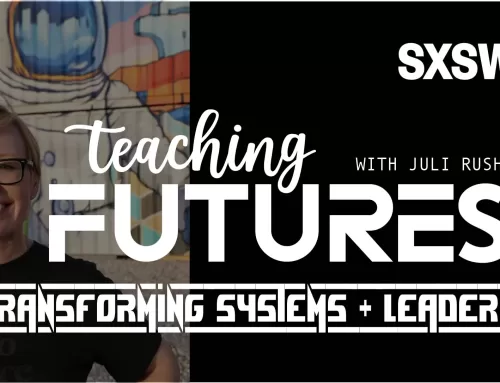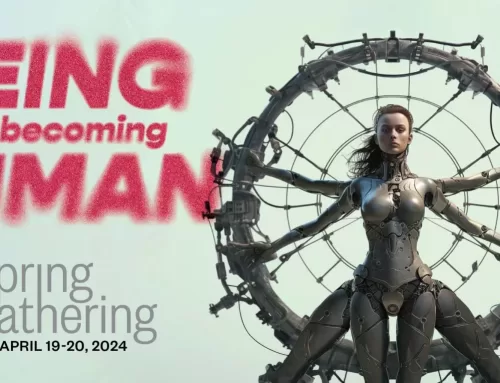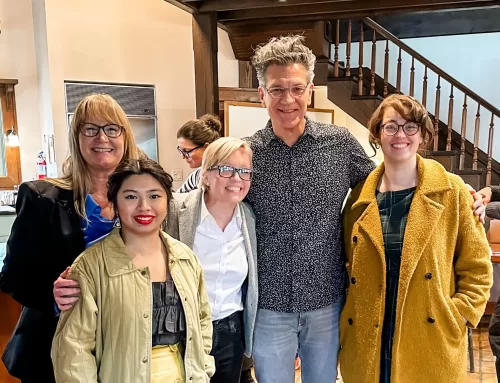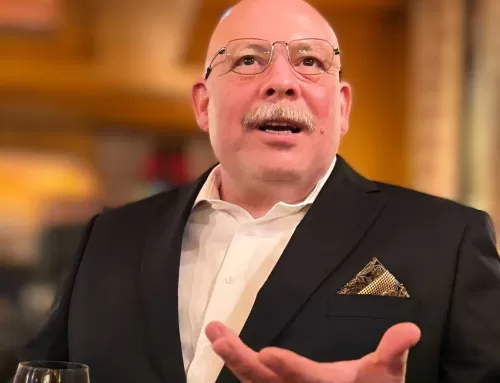In this video, Laura Schlehuber interviews Adam Cowart about the Design Thinking class – specifically his point-of-view on its importance to the Foresight field.
Interview transcript
Laura: So you’re teaching design futures this semester. I’ve heard a lot about the class. We’re actually like downstairs. We’re doing another section that’s totally related to this. Maybe tell me a little bit about like why you wanted to do this or where your passion is or where you see this being like really important or foresight.
Adam: Right. So what I find really interesting about this space for me has been bringing a bit more of a design-centric posture to futures and futures students. Because I’ve been doing sort of the opposite where I’ve been teaching design students futures and more of the basics and understanding the opportunity for sort of synthesis and hybridity between the two methods, like how do you actually bring that together? And so really with design futures, we talk about the relationship is really born out of a certain sense of anxiety from both the fields, right? So in futures, in strategic foresight, there’s always been this lingering sense that we don’t actually… we haven’t actually been able to make that positive change in the future. And we’ve been talking about these climate change for 40 years. And, you know, nothing’s really changed our view.
Laura: Right, right, right.
Adam: So we’re really good at what we call the world building. So conceptualizing futures and the implications of that, but maybe not always so good at doing something about that. For the design space, the big anxiety is that they’ve actually world making space. So they’ve made tons and tons of things that have arguably not arguably they have negatively influenced the world in many, many ways. Positive too, but also very negative in terms of overconsumption and all that type of stuff. And so thinking in terms of and so thinking for design, people thinking in terms of what are the actual implications of what they’re doing and how do they think a little bit broader and longer term in terms of what it is they’re actually doing with the skillset that they have? And is that going to create positive or negative change in the world? So the idea is that you bring those two together, you say, okay, we’ve got the world building and the implications and the long term horizon thinking and we’ve got the ability to materialize and make stuff in the world. So if we bring those two together, then maybe we can make real meaningful right change in the future.




